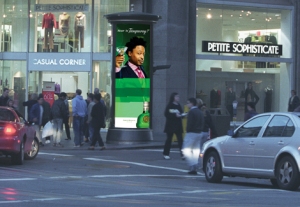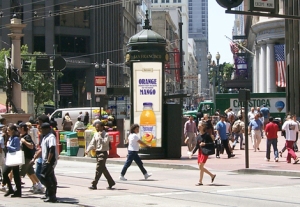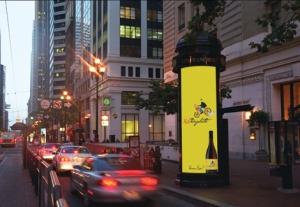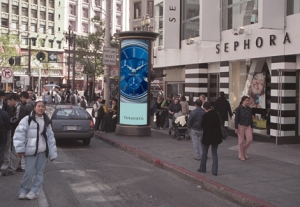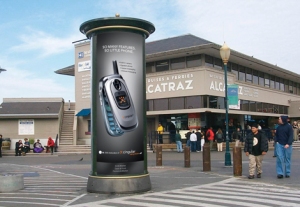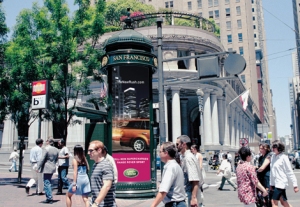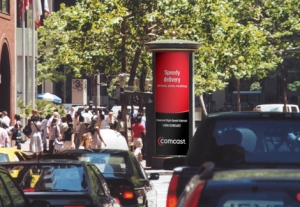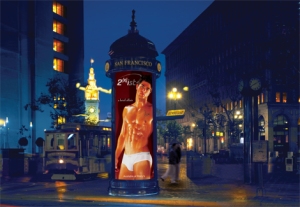The Daily News asked all Los Angeles City Attorney candidates to answer a questionaire so that they could better understand each candidates positions and determine who they wanted to endorse. I sincerely appreciated the opportunity to describe to them what I stand for, how I will address the issues facing the City of Los Angeles, and why they should endorse Noel Weiss – # 44 – for City Attorney for the March 3, 2009 Primary Election.
I have decided to post the questionaire and my answers below so that the people of Los Angeles can better undertand my candidacy, as well as view Los Angeles through the eyes of the Daily News.
QUESTIONAIRE DIRECTED TO NOEL WEISS – CANDIDATE FOR
LOS ANGELES CITY ATTORNEY
BY THE LOS ANGELES DAILY NEWS
1. What would you do differently from current City Attorney Rocky Delgadillo?
This question is very broad in its scope. I will attempt to answer by providing specifics with regard to the various operations of the Office after a general comment:
General Comments:
My goal is to move the office beyond the status quo into the next realm by transforming the office of City Attorney into a problem solving tool that works for the people and reaffirms their faith in the viability and vigor of the social contract between government and the people. Because a skillful and successful leader is one who can maintain a healthy balance between ‘ego’ and ‘imagination’, I would strive to reach that balance and encourage others to try as well. All policies and programs of the office would be measured against a governance standard and principle which would require that the program, idea, or policy be practical, pro-active, positive, progressive, and principled.
I believe the City Attorney represents all of the people, not just the narrow political interests of each Councilmember or the Mayor, or the special interests. Where the narrow political or special interests of the Council or the special interests diverge from the broader public interest, I would endeavor to represent the broader public interest.
So each of my questions to the questions must be viewed within the context of this overall governance philosophy.
Criminal Enforcement:
This is covered in my response to Question Nos. 4-5 below.
Land Use Issues:
(a) Enforce the land use laws as vigorously as Rocky enforces the criminal laws against gangs. Rocky has been woefully deficient in enforcing the land use laws. For example, he and his office stood idly by while 62 tenants at Lincoln Place get evicted in a para-military operation in December, 2005, in violation of a ‘no eviction’ promise which the speculator AIMCO (and Robert Bisno) made to procure land use entitlement rights to develop the property. The political and legal malpractice of the City Attorney was confirmed in two Court of Appeal decisions issued two years apart. Despite this, Rocky’s office remains recalcitrant to the needs of the people and to his responsibilities under the law. The City Attorney is responsible for the fact that there are currently 38 acres of vacant apartments at Lincoln Place today – A monument to the failure of our Planning System and the City Attorney’s office.
Other omissions occurring under Rocky’s tenure are (i) the failure to insist on full compliance with AB 283. This is a statewide law which mandates that a parcel’s zoning be consistent with the community plan where the parcel exists; (ii) the failure to insist that provision be made in the SB 1818 implementation law for the City to undertake an economic analysis of whether a requested density bonus is really necessary or econ-omically feasible. Recently, the City just lost a case because the Planning Department lacked the requisite protocol to evaluate whether the proposed development would have a specific, quantifiable adversely impact on the health, safety, or local environment (the Louise Street case); (iii) the failure of Rocky’s office to publish opinions on core important land use issues which would work to educate the public and Councilmembers on the legal options that exist when confronting a given public policy issue;
(b) I would insist on compliance with the Framework Element of the General Plan which directs that the City preserve the character and scale of our residential neighborhoods and concentrate density along transit corridors;
(c) I would insist that the laws mandating yearly infrastructure reports be prepared and presented to the public and council be enforced so that the Council could reasonably evaluate whether the zoning needs to be modified pending the City’s providing the needed infrastructure to support development;
(d) I would insist that the monies set aside under the Ventura-Cahuenga Blvd. Specific Plan that was unspent for the last 10 years be spent on traffic mitigation and beautification. I would ensure that the Housing Authority carry out its duties in a competent manner. Too many dollars are being wasted on incompetence and corruption (it got so bad that late last year, the Postal Service ceased delivery of mail to the residents of Mar Vista Gardens)
(e) I would ensure that the Housing Department properly, accurately, and thoroughly carry out its functions, particularly with regard to the information circulated to the general public – some of which is just wrong or incomplete;
(f) I would undertake a thorough examination of how the Housing Authority has done business. There have been numerous concerns expressed by the Apartment Owners Association of Greater Los Angeles about corruption and mismanagement. I would examine and investigate those allegations in partnership with the controller and I would hold public hearings if necessary to gather the facts. I would be very pro-active in sug-gesting proposals for reform. If and to the extent the Housing Authority resisted inquiry and investigation, then I would file suit against the Housing Authority for damages and for remedies to abate and cure what appears to be ‘nuisance-type’ activities which the Housing Authority is allowing to occur on one or more of its properties. This is some-thing which the Oakland City Attorney did to great and positive effect within the last year.
(g) I would issue many, many more written opinions on land use issues and invite contrary opinions from the legal community. In this way, many of the legal questions which arise in land use issues would be circulated in advance and as part of the protocol attendant to public land use decisions. This would have the effect of lessening the litigation which occurs over these land use matters. It would also empower the people. The special interests and their lawyers know where the City Attorney stands because they get continual and regular access to City Attorney’s staff;
(h) I would be creative, practical, and pro-active in coming up with creative ways to get more affordable housing, as I did (over the City Attorney’s objection that it could not be done) with a project on Ben Avenue and Magnolia Blvd. in Valley Village (down the Street from No. Hollywood High). In that instance, I was able to mediate a dispute between the community and the developer over a 96 unit development which resulted in the developer’s agreeing to affordable housing promises and covenants to provide up to a 5% discount for teachers, firemen, and policemen. Apart from incor-porating the promise into the land use entitlement conditions, I also empowered the community by declaring the violation of the condition a ‘nuisance’ (under LAMC 11.00, the violation of a land use condition is deemed a ‘nuisance’) which would give standing to the community to enforce the condition via a lawsuit against the developer to abate the nuisance. I also negotiated very strong construction mitigation conditions, with proper notice to the Community which worked well for all concerned. This was done without any assistance or input from the City Attorney’s office or the Council office – It was pure community empowerment. As City Attorney, this is the kind of thing I would encourage and facilitate;
(i) I would issue opinions as City Attorney on the issue of how the Planning Department is to evaluate the core question of the nature and extent of the ‘cumulative’ development component of Environmental Impact Reports. This is a large loophole through which developers and speculators walk. The Planning Department lacks any formal protocol to evaluate when, how, and under what circumstances the question of the extent and impact a given development will ‘cumulatively’ have on the environment or the City’s infrastructure (physical and social). This must stop;
(j) I would issue legal opinions on the subject of when and under what cir-cumstances development is appropriate, all designed to ensure that the promises of the Community Plans, Specific Plans, Framework Element, and General Plan are kept (this is part of the social contract between the people and their government). Perhaps the most significant is the possible ‘over-zoning’ of (many R-3) parcels in violation of AB 283 (still state law), and the failure of the Planning Department to do as promised in reconciling the scope of the potential building envelope incorporated into our zoning laws and zoning designations with (i) the initial assumptions which went into the crafting of the Com-munity Plans and (ii) the current capability of our physical infrastructure to handle the anticipated development contemplated by those Plans;
(k) I would create bonds and alliances with progressive cities throughout the Country to draw on their knowledge and experience to formulate ideas and policy choices for the people and the City Council which incorporate into our zoning laws our core social values (like, for example preservation of the middle class) and then recommend changes to the zoning laws (after procuring thorough public input) to the City Council. Ideas such as TOPA (Tenant Opportunity To Purchase Act) would be evaluated from a legal perspective, with an emphasis of providing written counsel to the public on how such ideas can be made to lawfully operate. To date, Rocky’s office has not done anything approaching this. Currently, the City Attorney’s office is the place where all good ideas go to die. I want the City Attorney’s office to be the place where new and exciting ideas are born and thrive;
(l) I would vigorously enforce LAMC 12.95.2 which deals with the protocol on how tenants residing in apartments to be converted to condominiums are to be treated and whether, and under what circumstances the City can and should deny a condo conversion request. Rocky’s office admitted in 2006 that it did not enforce all of the tenant protections in the law (ostensibly because they conflicted with the Ellis Act). If the law is, for reasons not enforceable, then the City Attorney needs to issue an opinion to that effect rather than remain silent.
General Administrative Issues and Office Management
(a) I would assign a Deputy City Attorney to each Council office as a legislative liason to advise that Councilmember on a regular and on-going basis on all matters pertaining to both potholes and policy. I have vetted this idea among City Attorney deputies and they feel it is both practical and pro-active because when Council offices get calls about problems, they just refer them over to the Neighborhood Prosecutor anyway. This position would be a ‘star’ position in the office because it would require the individual to operate on multi-dimensional levels – administrative, political, legal, economic, and practical. In addition, motions will be better drafted to reflect the current dynamic as it exists between the law and the proposed legal changes; and proposed alternative changes to the law can be thought out in advance; and Councilmembers would be better informed when voting on matters. As things are now, there is no guarantee that the Councilmember has been properly advised as to all of the legal practicalities, possibilities, and principles attendant to a given policy decision or a decision on a land use appeal;
(b) I would be pro-active in acting as a bridge-builder between the combined legislative-executive branch (the Council) and the various departments – attempting to identify problems out front and ameliorate and mitigate those problems. This would better ensure that the Agencies of the City Government are adequately, competently, and carefully carrying out City Policy;
(c) I would have performance audits done yearly as to all aspects of the office’s operations. That could come from the Controller or from an independent auditor;
(d) I would publish a yearly budget and report of office expenses and operations, case results, and independent Council expenditures so the public can clearly know what their City Attorney is doing;
(e) I would publish my official schedule on a bi-weekly basis;
(f) I would work to improve morale among the staff City Attorneys by identifying the causes of the current morale problem, and taking steps to inspire and excite the imagination of each deputy in an effort to build consensus around a shared vision of the office and its objectives. The goal would be to then develop a collective commitment toward achieving that vision and those objectives, and to generate a real espirit de corps. There is no reason why the City Attorney’s office can’t be the best public law office in the Country;
(g) Laws would be written with more clarity and simplicity. An example is the complicated protocol which the City Attorney purposely created in administering the law related to the sums owing to tenants involuntarily relocated. A cumbersome bureaucracy was needlessly created which failed to take into account if, whether, or to what extent a tenant’s was entitled to more money due to being disabled. While the rights of landlords to a hearing were protected; the rights of tenants to a hearing were not. In addition, existing policy changes and administrative changes could be identified and communicated more thoroughly to Councilmembers. This way, something like the billboard settlement would be less likely to occur;
(h) Opinions on important land use issues would be published on a regular basis so that citizens would know what the City’s positions are on these matters in advance. That would lead to more informed judgments by the City Council and the Commissions; more thoughtful analysis and discussion; more likely compromise in advance of litigation; and therefore less litigation and a greater possibility of getting similar results in similar cases. All City Attorney opinions during the last 20 years would be catalogued, organized, and published on the City Attorney’s website so that citizens could easily search and obtain prior opinions. That includes opinions on cases which involved non-published court opinions. The special interest lawyers have this kind of information. The general public should as well in order to equalize the playing field and ensure that City Council policies are well thought out;
(i) Assign a Deputy CA permanently to the Neighborhood Councils to provide guidance on procedural and substantive issues (most importantly land use issues). This can be paid for by allocating $5,000 of the $50,000 given to Neighborhood Councils for that purpose. 4-5 City Attorneys should be able to cover the Neighborhood Councils. The City Attorney website can be modified to provide a special Neighborhood Council section where written advice to questions is posted and maintained. This will enable Neighborhood Councils to see how similar problems were handled by others. That, in turn, would lead to having greater consistency across the board in terms of how the Neighborhood Councils would operate and decide issues. It would make more meaning-ful and fulfilling service on the Neighborhood Council;
(j) Provide an alternative means by which Neighborhood Councils could get important core issues before the City Council by using the Office of City Attorney to write reports to the City Council which reflect recommended changes in the law (along with a draft of the proposed ordinance) as determined by political consensus developed by the City Attorney’s office after having met with Neighborhood Councils, Homeowners’ Associations, and other community groups. This is a bit of a slant on the idea of having Neighborhood Councils open council files. My policy would be that if a combination of 4-5 community organizations agreed on the need for proposed changes to a law or admin-istrative procedure, I would help the ‘collective’ develop their thoughts and then present those thoughts into one or more proposed ordinances for the City Council’s consideration. This is one example where the City Attorney’s Citywide Task Force I would create would and could produce tangible results by translating good positive ideas into constructive political action. This way, a Council file is open. This is one way I would work to craft a competent, capable, well thought out whistle-blower and public records access ordinance. Whether the City Council wants to hear the matter would be up to the City Council. But the people would have something on which they could focus; and if the City Council failed to hear the issue, and it was that important, then the City Councilmembers could be held accountable at the ballot box. The possibilities here for vibrant, viable governance are extensive and very exciting. It is a way to repair the breach in the social contract between government and the people; restore people’s confidence in the system; and better ensure that our laws and our governance structure works for the people and reflects our core social values;
(k) I would establish a rule that fair comment and a fair due process on appeals would be that the appellant be given rebuttal time equal to the time taken by the City in presenting its defense to the appeal, not to exceed 20 minutes in total;
(l) I would establish a rule that meaningful public participation requires that all documents relevant to a particular Council Motion be given to the public via internet posting at least 3 days in advance of the committee or council hearing unless there is a defined emergency (this would make public hearings more meaningful);
(m) I would completely reorganize the City Attorney’s website to make it more user friendly. The model I would use is that of the Oakland City Attorney, John Russo (see http://www.oaklandcityattorney.org)
(n) Index and catalogue all City Attorney opinions for easy access, along with tract map decisions on land use issues and post them on the City Attorney’s website at a special place;
(o) I would require that amending motions introduced in committee or in council must allow for public comment before they are voted on;
(p) I would assign a Deputy City Attorney to handle all questions raised during public comment (legal or factual) with a written report back to the member of the public who raised that question and to the Councilmember in whose district the person who made the public comment resides. These questions and answers would also be posted on the City Attorney’s website;
(q) I would be vigorous in enforcing the rule that each Council member has to be present in the Council chamber when voting on a matter before the Council;
(r) I would insist that the Council show respect to the public during public comment and, if necessary, ask that Councilmemnbers take their seats and listen to each public comment;
(s) No committee would be allowed to start without a full quorum being present;
(t) I would require that the CLA’s office include in the Minutes of each Council meeting and committee meeting the following specific information: (i) when each council member arrived, (ii) when each council member left, and/or (iii) when each councilmember returned so that each Councilmember’s attendance is clearly and properly reported to the public.
(q) I would create a City-wide ‘City Attorney Task Force’ modeled on the Watts Gang Task Force and meet personally with citizens in each district on a revolving basis to shepherd ideas and develop a meaningful pro-active agenda.
2. Do you believe the city attorney’s expenditures on outside counsel are appropriate or excessive?
Yes, I believe the City Attorney’s expenditures on outside counsel are excessive – very excessive. Part of the problem is that some of the litigation is needless because it devolves out the City Council failing to set policy; or the laws not being well written; or the City Attorney’s cover up of its its own malfeasance. Needless litigation on Lincoln Place has gone on for years because the City Attorney’s office refused to acknowledge its own bad advice and judgment errors.
3. How would you handle the billboard company settlements that have allowed the conversion of static billboards to digital billboards? How would you enforce the billboard ordinance?
(a) I would push the City Council to waive the attorney-client privilege on its discussions of the earlier settlement so the people can know, understand, and appreciate what occurred during the settlement discussions which led up to the Council’s approval of the Billboard settlement in September 13, 2006 (Council File No. 03-2771);
(b) I would ask the Court to set aside the Settlement Agreement on the ground that (among other things) (a) the Oral Motion presented to Council by Bernard Parks and Greig Smith to accept the settlement (presumably prepared by or with the advice or consent of the City Attorney) was deficient in that (i) it failed to adequately describe the fact that what should have been discretionary actions requiring CEQA (environmental) review (the conversion of static billboards into digital-electronic billboards) were being turned into ministerial actions over which the City (presumably) would have no control (thus prejudicing the public, but giving the Council members license to say to the public – ‘There’s nothing I can do’), (ii) it failed to provide for any due process or notice to the public whose communities would be adversely impacted by the digital signs, (iii) and the public was denied a fair and meaningful opportunity to comment on the Motion (a possible violation of the Brown Act). In short, the broader public interest was sacrificed on the alter of the narrow political interests of the Council and the special interests of the Billboard companies; and (b) the City gave up too much of its power to regulate billboards in the settlement and thus is an unlawful settlement and otherwise prejudicial to the public. The current City Attorney refuses to do this because the political malpractice and legal malpractice of the office in recommending such a settlement would be revealed;
(c) I would subpoena the records of every billboard company (in partnership with the Controller) and obtain a full list of every billboard location in the City. Unlawful signs would go down after a reasonable period of time (90 days) and both the landowners and the billboard companies would be prosecuted to the full extent of the current law. I would then initiate administrative proceedings within the City Attorney’s office (or within Planning) where formal hearings would be held against landowners (lessors permitting these billboards to be erected on their property) and establish and determine whether the signs were or were not lawful. Performance conditions would then be put in writing and recorded against each property as part of what I would characterize as administrative nuisance abatement. Until the City Council got around to adopting a policy on billboard proliferation, these matters would be handled on a case-by-case basis. Some, I suspect would involve improper actions by the billboard companies in having landowners sign permits. One major Lessor of billboards, Mort Allen, has taken the companies to Court contending they forged his signature on permits. If such allegations are true, the permits would be challenged and voided out. The nuisance abatement conditions which would be established would include provisions which control lighting conditions, maintenance conditions, and actual sign conditions (including size and security). The restrictions would thereafter run with the land and violations of the same would constitute a misdemeanor fully prosecutable by the City Attorney’s office. This would begin to put a dent into the billboard problem;
(d) Other candidates have talked about prosecuting the executive officers of the billboard companies. I would also look into that. But before I did that, I would hold public hearings as City Attorney asking the Billboard companies to respond to the citizen complaints and issues in an effort to try to generate some public comment and communication. If the billboards wanted to take a tough line, I would take an equally tough line on behalf of the people; and I would win.
4. What would you do as city attorney to reduce violent crime?
(a) I support the idea of Jack Weiss and Janice Hahn for the City to pass an ordinance to prohibit certain misdemeanor convicts from owning a firearm for ten years. This will help keep guns out of the hands of gang members and those who commit dangerous misdemeanor crimes.
(b) I would vigorously enforce the laws pertaining to gun and ammunition sales.
(c) I would seek to partner with each of the 87 Cities in Los Angeles County and to the extent possible have each City agree to assign a Deputy City Attorney to a violent crime collective who would be deputized by the District Attorney to investigate gang crime and violent crime. Because there are so many different legal jurisdictions in Los Angeles County, the Cities have to begin to work more closely together;
(d) I would create a Citywide ‘City Attorney Task Force’ where I would meet once each week in each Council District with community members, police, religious, and other civic leaders for 3 hours. This would be modeled off of Janice Hahn’s Watts Gang Task Force which, in its three years (I have been a member 2.5 years), has reduced crime in Watts by 50% year over year (including violent crime). The meetings would be run by Human Rela-tions (as is the case with the Watts Gang Task Force). I would be there to listen, to learn, and to elicit direct community input on what a community needs to effectively combat violent crime;
(e) I would be much more proactive with the schools in terms of attempting to initiate education programs on coping skills and dispute resolution techniques;
(f) To the extent the violent crime results from drinking and alcohol, here the land use laws impact. There needs to be less liquor stores in some communities and I would endeavor to try to find a way to control where new liquor outlets are placed after older ones cease operating;
(g) An aggressive push to prevent Domestic Violence would also help because violent crime is also borne out of domestic violence situations;
(h) A much more aggressive graffiti abatement program must be initiated and enforced;
(i) To the extent that violent crime is the result of foreign gangs invading our country with the express intent of undermining our youth and our core social values, I would ask the City Council to pass a Resolution asking the President to declare known foreign gangs as Official Foreign Terrorist Organizations. This would enable the City to more closely partner with the US government in going after foreign terrorist gangs. To the extent that the City Attorney can and will seek to partner with other Cities as indicated above, then the collective, combined resources of law enforcement on all levels can be brought to bear.
(j) As with land use issues (where we don’t have good data on the vacancy rate or on traffic mitigation issues) I would endeavor to get better core information on all of the details relating to violent crime (the demographics of violent crime; the socio-economics; the nature of violent crime committed by parolees);
(k) I would stay on top of the rape kit issue, which is something Jack Weiss failed to do, despite the contrary implication set out in his campaign commercial. (See Council File 02-2082 – Introduced by Jack Weiss September 20, 2002 – and let die with no follow-up action (other than receipt of an LAPD report in October, 2004)).
In short, what is required is a true partnership between everyone in the City to (a) assure that those who commit violent crimes suffer quick and severe penalties; (b) that a viable social and support service network is created and nurtured (the Citywide Task Force) on all levels so that a collective, meaningful effort can be engaged to not only deal and confront the violence itself, but one or more of the root causes of the violence.
5. What’s your assessment of the gang injunction program? Is it working? Should it be changed?
I know something about gang injunctions because I have been a member of the Watts Gang Task Force since October, 2006. I believe the gang injunction program is similar to a nuisance abatement program, in this case, with the target being gangs. I am not aware of any studies on the effectiveness of gang injunctions. As City Attorney I would examine this question – pro and con – in order to make the policy more effective where it works, and to cure its deficiencies where it does not work.
The members of the Watts Gang Task Force (the community and the police) discussed for a long time the fairness and practicality of how the gang injunction program can be used as part of a rehabilitation tool – how people once on a gang injunction can get off. After about a year, the City Attorney’s office did come up with a program and a protocol as to how individuals who were never in a gang (but named in the injunction) or who were in a gang but are no longer in a gang can be removed. The City Attorney is now touting this program and it is a good program because it does not help the community when one is proscribed or unable to get off a gang injunction when one has really reformed one’s conduct.
Moreover, the need for a thorough study is important because gang injunctions, by law, are required to be limited to a given geographical area. What if, for example, a gang injunction in one area pushes the gang members to another area. In that case, the injunc-tion would have the effect of spreading gang violence rather than limiting it. That is relevant and supportive of my proposal to have the Los Angeles City Attorney lead a county-wide task force of City Attorneys from other Cities, have the District Attorney deputize those City Attorneys, and then attack the problem from a more focused, planned, strategic perspective. Then the strategies employed in Los Angeles will better serve the residents of not just Los Angeles, but of the entire County. In addition, our precious public resources can and will be spent more efficiently and effectively.
A related concern is that gang injunctions can lead to needless police harassment. As the Watts Gang Task Force demonstrates (and it is comprised of LAPD law enforcement from the Deputy Chief level to the Captain level to the Sargent level) and its members will attest, there is a problem at times with how the injunctions are enforced. Where it leads to perceived harassment, it breaks down the bonds of trust between the police and the community that are critical to fighting crime. The citizens must perceive the police as their ally, not their adversary. So care has to be taken that enforcement of the gang injunctions by police through the application of bad law enforcement techniques don’t undermine the goal – which is the reduction and elimination of gang crime.
I would also look to other ways to expand the injunction to take into account the ways and means gangs finance their activities. Apart from just congregating together, why can’t civil collective gang abatement activity take the form of going after identify theft, credit card fraud, copyright infringement, drug laundering operations, tracing where these people get their money. More aggressive and affirmative civil remedies in addition to injunctions can be employed – like getting a Receiver appointed to examine the finances of individuals or groups reasonably suspected of engaging in commercial unlawful gang activities which help to finance their unlawful and criminal enterprise. Here again is an area were cooperation between jurisdictions would be extremely beneficial. Merely getting standard gang injunctions is not enough. People who harbor gang members must be identified and pursued as co-conspirators. As noted above, it would help if President Obama declared one or more of the foreign gangs (in El Savador in particular) Foreign Terrorist Organizations so that the City could obtain the benefit of the resources of the Federal Government.
To often in our City, our policy makers lack core data which can inform their decisions. What is the vacancy rate in the City? We don’t know. What is the drop-out rate? We don’t know. What is the homeless rate? We don’t know. What is the number of individuals who live in bootlegged (unlawful) housing? We don’t know.
On the gang injunction side, lets’ evaluate the effectiveness of the gang injunctions in place. They are geographic so we can begin to get a handle on what really occurred after they were put into place – particularly as it relates to drug trafficking, homicide, and other violent (gang related) criminal activities.
The LA Times reported in May, 2005 that:
“Although the injunctions make for good political rhetoric, their effectiveness remains in question. Cheryl Maxson, a UC Irvine criminologist, said the actions have a modest effect on crime and may help perceptions about an area. In the late 1990s, Jeffrey Grogger, a former UCLA professor now at the University of Chicago, studied 14 gang injunctions and concluded that violent crime fell 5% to 10% in the year after they took effect. Critics, however, warn that often those named in the court actions move to new turf, leaving a younger generation to take over the affected territory.”
Chief Bratton has said repeatedly that we cannot arrest our way out of the gang problem.
I would be much more aggressive and pro-active on graffiti in this City as part of the gang injunction effort. Graffiti is an indication and reflection of the degree of our success in overcoming this gang problem.
6. Should the controller be allowed to audit programs in the offices of elected officials?
Yes.
7. How would you ensure people have full and fair access to public records in the city?
(a) I would sponsor and persuade the City Council to pass an ordinance which would guarantee the right to all the Citizens of the City (including the news media) to all public records possessed by any City Official. I would contend and advocate for a clear statement in the law that all documents produced with taxpayer money belong to the taxpayers. That way it would be clear that letters, correspondence, etc. of Council-members and officials belong not to them, but to the City. As such, upon leaving office, those documents would have to be turned over to the City for permanent safe-keeping. In addition, as City Attorney, I would ask for copies of all reports and documents on pending matters (or major pending matters I would identify). That way, for example, Eric Garcetti could not get away with ignoring the PA Consulting Report, or play a game by having a third party summarize it for him and then keep those documents from both his City Council colleagues and the public. Because the document came into my possession as City Attorney, I would release it to the public along with my opinion on its legal implications. This is yet another example of the City Attorney acting in the broader public interest as the attorney for the people, rather than protecting the narrow special business or political interests of the groups or individuals seeking action by the Mayor and Council on a particular issue. The same applies to the Mayor’s operation of one or more public schools. As City Attorney, I would require that all documentation attendant to the Mayor’s activities be made public; and as City Attorney I would issue a written opinion on whether the Mayor was acting lawfully or properly with regard to his duties (My current opinion is that the Mayor lacks the power under the Charter to run public schools – But everyone is silent on that question. It does not serve the public interest in any way, shape, or form for this to occur).
(b) I would also advocate for the passage of an ordinance protect whistle-blowers by providing for immunity from prosecution, a right of action to share in any cost savings which were obtained as a result of the whistle-blower’s allegations being substantiated (modeled off of the Federal System); and provide that any and all depositions and legal documentation from any lawsuits involving allegations of misconduct by any official in the City Attorney’s office be made public at the conclusion of the litigation. This did not occur in connection with the litigation against Rocky Delgadillo and the City of Los Angeles back in June, 2006, in Lynn Magnandonovan’s wrongful termination lawsuit against the City where the depositions of Rocky and his top aides were sealed.
With a proper and thorough Public Records law in Los Angeles and an effective whistle-blower law, things typical of that which occurred in the Lynn Magnandonovan wrongful termination suit would not have occurred; and the actions of Rocky in covering this matter up would also have been a less likely occurrence. In the end, the City was hit with a $1.5 Million judgment, along with a multi-million dollar fee award, something which all of the ‘core four’ candidates (all the candidates other than Jack Weiss) have decried.
